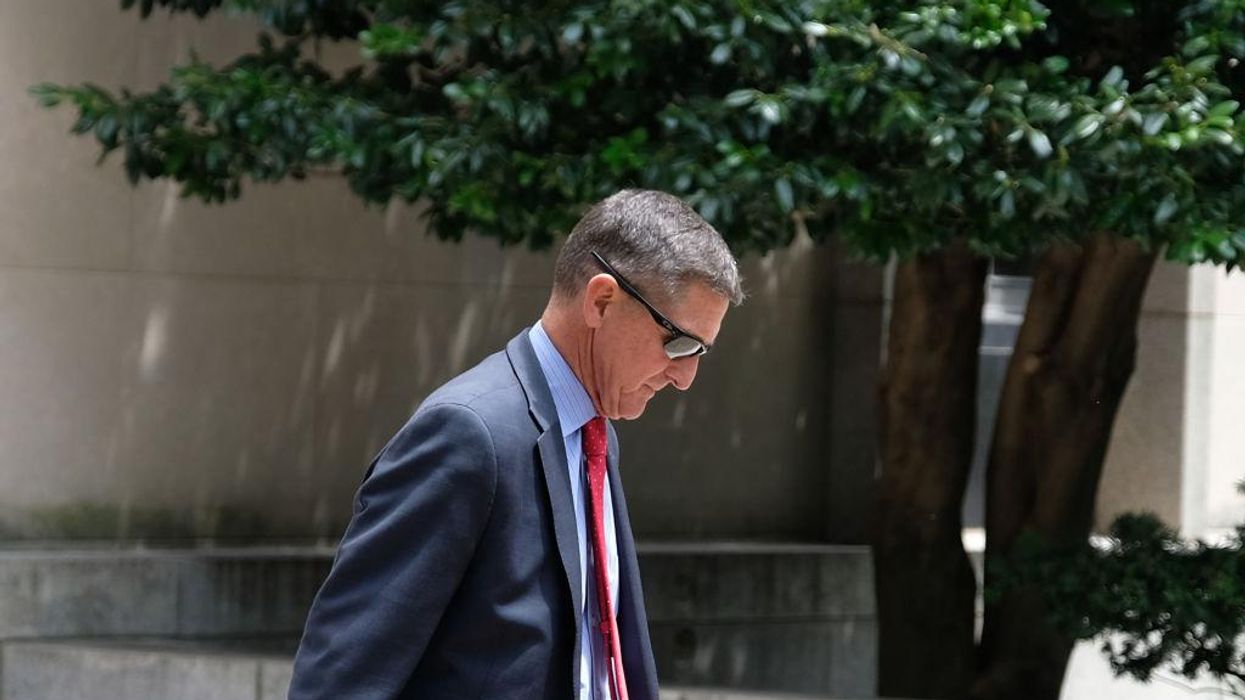
Alex Wroblewski/Getty Images

'Delusional ramblings of a Resistance lawyer'
The D.C. judge presiding over the criminal case against former national security adviser Michael Flynn on Tuesday dismissed the case following President Donald Trump's pardon of Flynn, making a point to emphasize that while the case is moot, the pardon does not mean Flynn is innocent of the charges.
In a 43-page opinion, U.S. District Judge Emmet G. Sullivan said that Flynn's pardon "does not, standing alone, render [Mr. Flynn] innocent" of the charges that he lied to the FBI about his conversations with agents of the Russian government before Trump took office. He also said he likely would have denied the Department of Justice's attempt to have the case dropped, which Attorney General William Barr pushed for after he found that the FBI had no valid reason to interview Flynn.
Sullivan's opinion heavily criticized the Justice Department for making "pretextual" arguments to have the case against Flynn dismissed. He accused the "stated rationals" of the government of being "dubious."
"President Trump's decision to pardon Mr. Flynn is a political decision, not a legal one. Because the law recognizes the President's political power to pardon, the appropriate course is to dismiss this case as moot," Sullivan wrote.
He added that "the scope of the pardon is extraordinarily broad," noting that it applies to "any and all possible offenses" with which Flynn might be charged in the future relating to special counsel Robert Mueller's Russia investigation.
During the course of Mueller's investigation, Flynn was interviewed by the FBI and later plead guilty to lying to investigators about his conversations with Russian Ambassador Sergey Kislyak on sanctions during the 2016 Trump transition. However, Flynn retracted his guilty plea and with the help of attorney Sidney Powell argued for his innocence by producing evidence that suggested he was unfairly targeted by the FBI.
Following the introduction of that evidence, the Department of Justice sought to have the case against Flynn dropped, but Judge Sullivan refused to grant the request. The case went back and forth from the District Court to the U.S. Court of Appeals until ultimately Sullivan was set to rule on the motion to dismiss. Before his ruling was completed, President Trump pardoned Flynn in November.
With the pardon complete, there is nothing for Sullivan to rule on, and so today he dismissed the case but not before blasting the government for seeking to have the case dismissed. He suggested that the executive branch's view that the case should be dismissed may be "contrary to the public interest" and may have shown "favoritism" toward Flynn, noting that Trump was personally interested in the outcome of the case. He also brushed aside the DOJ's argument that Flynn had a "faulty memory" and disregarded evidence that FBI investigators interviewed Flynn with the purpose of trying to "get him to lie," which Flynn's defense said shows how he was unfairly targeted.
With regard to Mr. Flynn's alleged "faulty memory," Mr. Flynn is not just anyone; he was the National Security Advisor to the President, clearly in a position of trust, who claimed that he forgot, within less than a month, that he personally asked for a favor from the Russian Ambassador that undermined the policy of the sitting President prior to the President-Elect taking office. With regard to the government's concerns about the Assistant Director for Counter Intelligence's contemplating the goal of the interview, an objective interpretation of the notes in their entirety does not call into question the legitimacy of the interview. Finally, and critically, under the terms of Mr. Flynn's cooperation agreement, the government could have used his admissions at trial, see Plea Agreement, ECF No. 3 at 8 ¶ 11; but the government ignores this powerful evidence.
Reacting to Sullivan's opinion, Sen. Tom Cotton (R-Ark.), one of Flynn's most ardent defenders, slammed the "delusional ramblings of a Resistance lawyer affected with Trump Derangement Syndrome" and said Sullivan should be removed from the federal bench.
President Donald Trump congratulated Flynn after the case was dismissed.